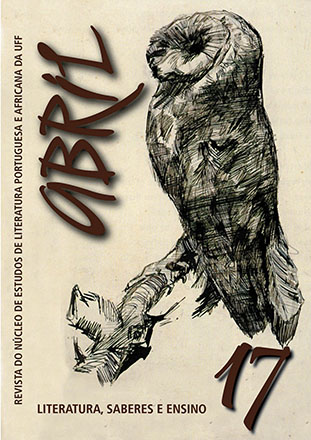The epistemological decolonization through the death by eye of childhood: analysis of Mia Couto literature
DOI:
https://doi.org/10.22409/abriluff.v8i17.29906Keywords:
Death, childhood, decolonization epistemological.Abstract
This article consist a comparative analysis of “O beijo da palavrinha” and “A chuva pasmada”, both works from the Mozambican writer Mia Couto, addressed to young people and children. The objective is to investigate the consonance and the differences of literary treatments given to the themes of death and childhood, as also to analyze, from these treatments, the historical and cultural processes that allow to equal the colonial heritage in the social and political context in Moçambique .The children’s role and the literary representations of families facing death allows us to reflect about childhood as a place of transit and cultural production; that consequently shifts the adult role and social institutions and to also suggest the constitutive socio multiplicity of an individual cultural and social identities. By such displacements, we aim to observe literary proposals regarding the corpus of those works, sustaining the need to improve the process of political and epistemological decolonization of marginalized social spaces, including the modernity and the capitalist world-system as the double face of colonialism.
---
DOI: http://dx.doi.org/10.21881/abriluff.2016n17a373
Downloads
Downloads
Published
How to Cite
Issue
Section
License
I authorize the journal Abril - NEPA/UFF to publish the paper of my authorship/responsibility that I now submit, in case it is accepted for online publication.
Moreover, I declare that this contribution is original, that it was not submitted to any other editor for publication, and I sign the present declaration attesting the truth of all its contents.
The copyright of the works published at the virtual space of the journal Abril - NEPA/UFF are automatically entitled to the journal. Their total or partial reproduction is conditioned to the authors' citations and publication data.

Abril is licensed under a Creative Commons - Attribution-NonCommercial 4.0 International (CC BY-NC 4.0).









